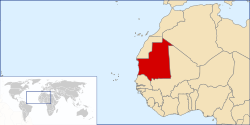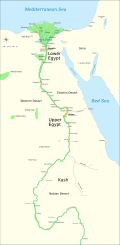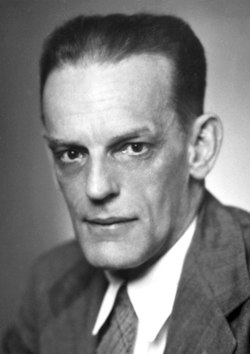Portal:Africa



Africa is the world's second-largest and second-most populous continent after Asia. At about 30.3 million km2 (11.7 million square miles) including adjacent islands, it covers 20% of Earth's land area and 6% of its total surface area. With nearly 1.4 billion people as of 2021, it accounts for about 18% of the world's human population. Africa's population is the youngest among all the continents; the median age in 2012 was 19.7, when the worldwide median age was 30.4. Based on 2024 projections, Africa's population will exceed 3.8 billion people by 2100. Africa is the least wealthy inhabited continent per capita and second-least wealthy by total wealth, ahead of Oceania. Scholars have attributed this to different factors including geography, climate, corruption, colonialism, the Cold War, and neocolonialism. Despite this low concentration of wealth, recent economic expansion and a large and young population make Africa an important economic market in the broader global context, and Africa has a large quantity of natural resources.
Africa is highly biodiverse; it is the continent with the largest number of megafauna species, as it was least affected by the extinction of the Pleistocene megafauna. However, Africa is also heavily affected by a wide range of environmental issues, including desertification, deforestation, water scarcity, and pollution. These entrenched environmental concerns are expected to worsen as climate change impacts Africa. The UN Intergovernmental Panel on Climate Change has identified Africa as the continent most vulnerable to climate change.
The history of Africa is long, complex, and varied, and has often been under-appreciated by the global historical community. In African societies the oral word is revered, and they have generally recorded their history via oral tradition, which has led anthropologists to term them "oral civilisations", contrasted with "literate civilisations" which pride the written word. African culture is rich and diverse both within and between the continent's regions, encompassing art, cuisine, music and dance, religion, and dress.
Africa, particularly Eastern Africa, is widely accepted to be the place of origin of humans and the Hominidae clade, also known as the great apes. The earliest hominids and their ancestors have been dated to around 7 million years ago, and Homo sapiens (modern human) are believed to have originated in Africa 350,000 to 260,000 years ago. In the 4th and 3rd millennia BCE Ancient Egypt, Kerma, Punt, and the Tichitt Tradition emerged in North, East and West Africa, while from 3000 BCE to 500 CE the Bantu expansion swept from modern-day Cameroon through Central, East, and Southern Africa, displacing or absorbing groups such as the Khoisan and Pygmies. Some African empires include Wagadu, Mali, Songhai, Sokoto, Ife, Benin, Asante, the Fatimids, Almoravids, Almohads, Ayyubids, Mamluks, Kongo, Mwene Muji, Luba, Lunda, Kitara, Aksum, Ethiopia, Adal, Ajuran, Kilwa, Sakalava, Imerina, Maravi, Mutapa, Rozvi, Mthwakazi, and Zulu. Despite the predominance of states, many societies were heterarchical and stateless. Slave trades created various diasporas, especially in the Americas. From the late 19th century to early 20th century, driven by the Second Industrial Revolution, most of Africa was rapidly conquered and colonised by European nations, save for Ethiopia and Liberia. European rule had significant impacts on Africa's societies, and colonies were maintained for the purpose of economic exploitation and extraction of natural resources. Most present states emerged from a process of decolonisation following World War II, and established the Organisation of African Unity in 1963, the predecessor to the African Union. The nascent countries decided to keep their colonial borders, with traditional power structures used in governance to varying degrees. (Full article...)
Selected article –
The Africa International Film Festival (AFRIFF) is an annual film festival that takes place in Nigeria. It was founded in 2010 with its Inaugural edition in Port Harcourt, Rivers State, Nigeria. AFRIFF was founded by Chioma Ude a passionate film buff and entrepreneur, The event normally spans through a week and it includes award shows and film training classes. Keith Shiri, the founder/director of Africa at the Pictures was one of the festival's artistic director of the festival. AFRIFF, through its Globe Awards, gives out honors in categories such Feature, Documentary, Short, Animation, and Students Short, as well as awards and prizes for Directing, Acting, and Screenplay. There are additional special awards for Audience Choice and an Outstanding Film Jury Award. (Full article...)
Featured pictures –
Did you know (auto-generated) -

- ... that Gil Scott-Heron's 1975 song "Johannesburg" was banned in South Africa during apartheid?
- ... that Muhsin Hendricks of South Africa has been described as "the world's first openly gay imam"?
- ... that Saint Augustine died during the Vandal conquest of Roman Africa?
- ... that a former French secret-service agent was responsible for seven out of the 26 Formula One drivers qualifying for the 1980 South African Grand Prix being French?
- ... that actress Dorothy Van Engle starred in the 1935 movie Murder in Harlem with a "proto-feminist role" that was then a primary source of positive representation for African Americans in film?
- ... that the lenient sentencing of two Europeans convicted in 1918 after the death of a black man in the East Africa Protectorate led to inquiries from the British Colonial Office?
Categories
Selected biography –
Max Theiler (30 January 1899 – 11 August 1972) was a South African-American virologist and physician. He was awarded the Nobel Prize in Physiology or Medicine in 1951 for developing a vaccine against yellow fever in 1937, becoming the first African-born Nobel laureate.
Born in Pretoria, Theiler was educated in South Africa through completion of his degree in medical school. He went to London for postgraduate work at St Thomas's Hospital Medical School and at the London School of Hygiene and Tropical Medicine, earning a 1922 diploma in tropical medicine and hygiene. That year, he moved to the United States to do research at the Harvard University School of Tropical Medicine. He lived and worked in that nation the rest of his life. In 1930, he moved to the Rockefeller Foundation in New York, becoming director of the Virus Laboratory. (Full article...)
Selected country –
 |
 |
||

| |||
Mauritania (Arabic: موريتانيا Mūrītāniyā), officially the Islamic Republic of Mauritania, is a country in northwest Africa. It is bordered by the Atlantic Ocean on the west, by Senegal on the southwest, by Mali on the east and southeast, by Algeria on the northeast, and by the Moroccan-annexed territory of Western Sahara on the northwest. It is named after the ancient Berber kingdom of Mauretania. The capital and largest city is Nouakchott, located on the Atlantic coast.
Approximately three-fourths of Mauritania is desert or semidesert. As a result of extended, severe drought, the desert has been expanding since the mid-1960s. A majority of the population still depends on agriculture and livestock for a livelihood, even though most of the nomads and many subsistence farmers were forced into the cities by recurrent droughts in the 1970s and 1980s. Mauritania has extensive deposits of iron ore, which account for almost 50% of total exports. The nation's coastal waters are among the richest fishing areas in the world, but overexploitation by foreigners threatens this key source of revenue. (Read more...)
Selected city –
Casablanca (Arabic: الدار البيضاء, romanized: al-Dār al-Bayḍāʾ, lit. 'the White House', IPA: [adˈdaːru ɫbajdˤaːʔ]) is the largest city in Morocco and the country's economic and business centre. Located on the Atlantic coast of the Chaouia plain in the central-western part of Morocco, the city has a population of about 3.22 million in the urban area, and over 4.27 million in Greater Casablanca, making it the most populous city in the Maghreb region, and the eighth-largest in the Arab world.
Casablanca is Morocco's chief port, with the Port of Casablanca being one of the largest artificial ports in Africa, and the third-largest port in North Africa, after Tanger-Med (40 km (25 mi) east of Tangier) and Port Said. Casablanca also hosts the primary naval base for the Royal Moroccan Navy. (Full article...)
In the news
- 3 May 2025 – South Sudanese Civil War
- At least seven people are killed and 25 others are injured in an airstrike on a hospital run by Médecins Sans Frontières in Old Fangak, Fangak County, South Sudan. (Al Jazeera English) (CTV News) (BBC News)
- 3 May 2025 –
- Togolese President Faure Gnassingbé is sworn-in as President of the Council of Ministers. Following constitutional reform that introduced a parliamentary system, this new post becomes the highest office in the government's executive branch. (BBC)
- 1 May 2025 –
- The bodies of three South African police officers who had been missing for six days are found in the Hennops River. (BBC News)
- 1 May 2025 – M23 campaign (2022–present)
- Authorities in the Democratic Republic of the Congo request the Senate to lift the immunity of former President Joseph Kabila to face trial on charges of supporting a rebel uprising. The Justice Minister alleged that there is was evidence implicating him in war crimes, crimes against humanity, and massacres of peaceful civilians and military personnel. (BBC News)
- 1 May 2025 –
- Kenyan parliament member Charles Ong'ondo is shot to death in Nairobi by unknown gunmen on a motorcycle in an apparent assassination. (BBC News)
- 30 April 2025 – Puntland–Somaliland dispute
- Las Anod conflict, Puntland–Somaliland prisoner exchange
Updated: 13:05, 4 May 2025
General images -
Africa topics
More did you know –
- ... that Safi Faye's 1975 film Kaddu Beykat was the first commercially distributed feature film made by a Sub-Saharan African woman?
- ... that legendary princess Yennenga, the "mother" of the Mossi people, was such a great warrior that her father refused to allow her to marry?
- ... that Safi Faye is a Senegalese film director whose work is better known in Europe than in her native Africa?
- ...that Mohamed Camara's 1997 film Dakan was the first West African film to explore homosexuality?
Related portals
Major Religions in Africa
North Africa
West Africa
Central Africa
East Africa
Southern Africa
Associated Wikimedia
The following Wikimedia Foundation sister projects provide more on this subject:
-
Commons
Free media repository -
Wikibooks
Free textbooks and manuals -
Wikidata
Free knowledge base -
Wikinews
Free-content news -
Wikiquote
Collection of quotations -
Wikisource
Free-content library -
Wikispecies
Directory of species -
Wikiversity
Free learning tools -
Wikivoyage
Free travel guide -
Wiktionary
Dictionary and thesaurus



























































































